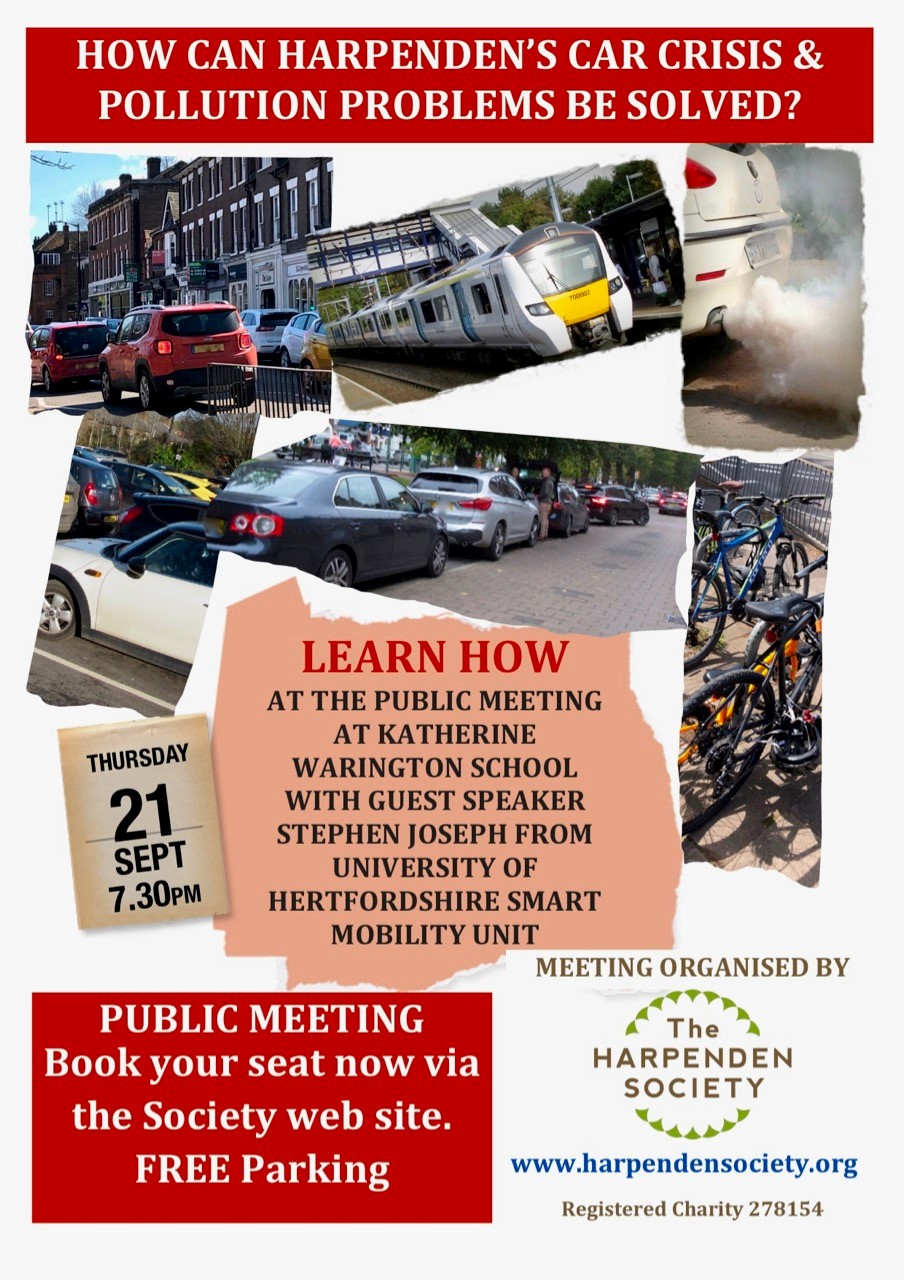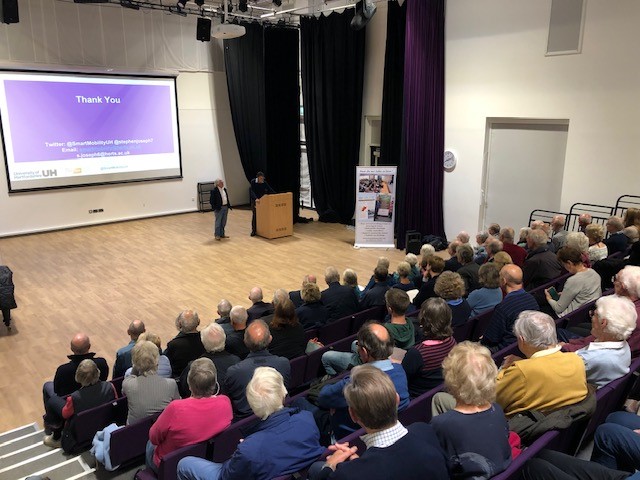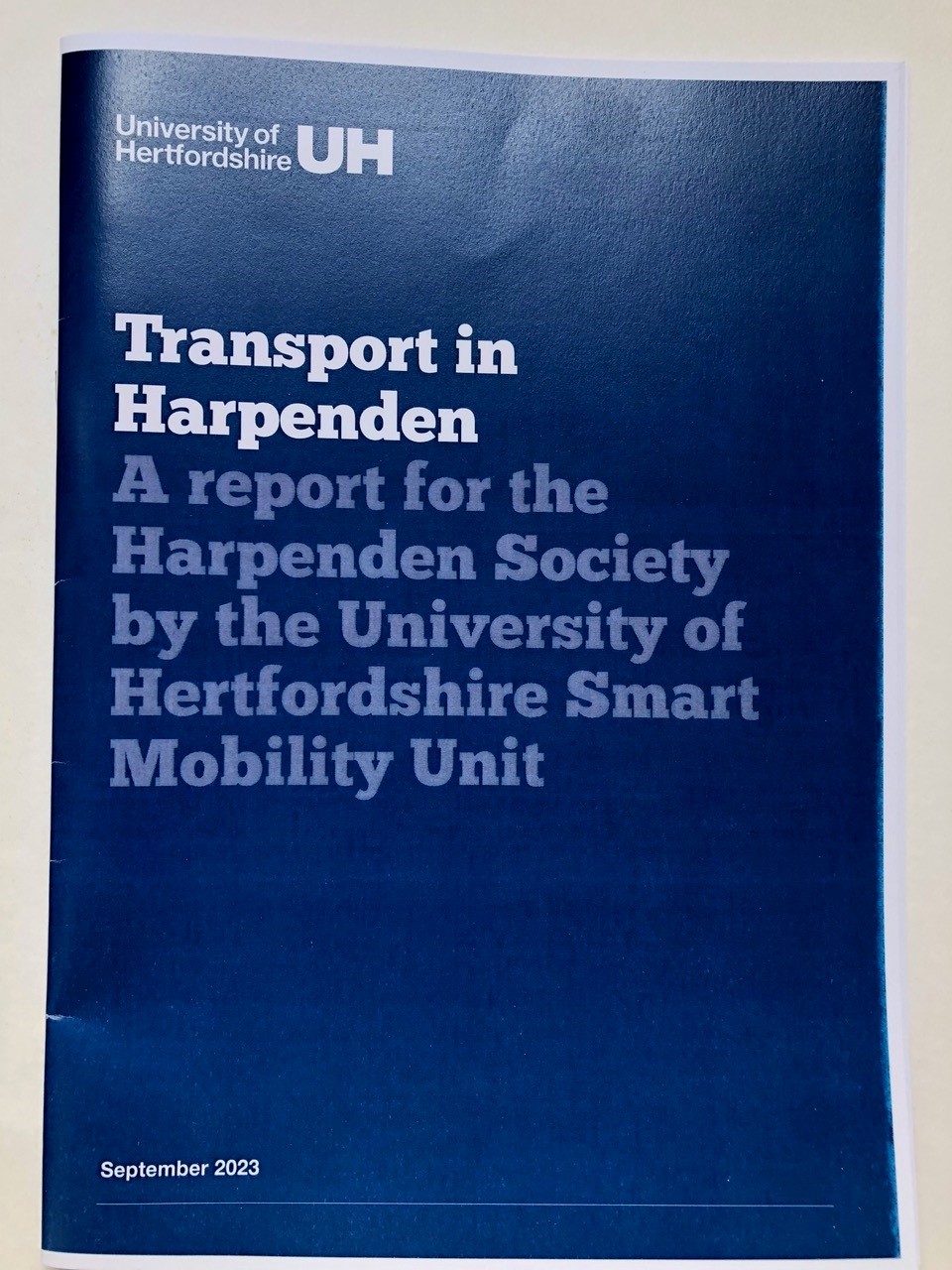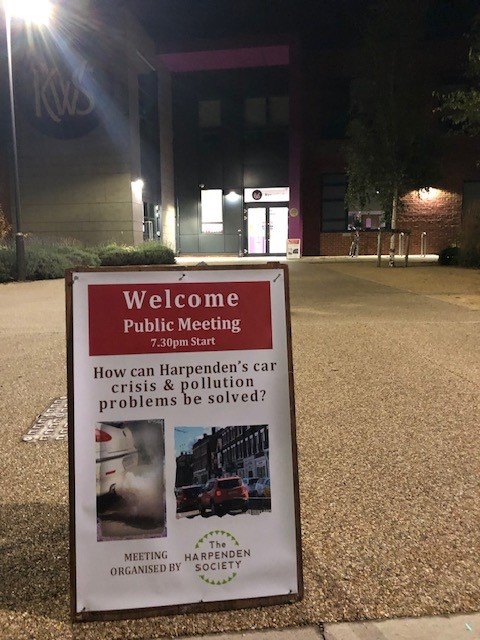

Society meeting and new report address Harpenden’s transport challenges
To download the University of Hertfordshire Transport Report click here.
To download the meeting presentation click here.
Traffic congestion, air pollution and parking in Harpenden, and how they might be alleviated, were key issues addressed at the Harpenden Society’s Autumn public meeting, by Stephen Joseph, head of the University of Hertfordshire’s Smart Mobility Unit. His presentation was based on a detailed 15-page SMU report commissioned by the Society.
An audience of almost a hundred Society members and other town residents at Katherine Warington School heard Mr Joseph’s analytical assessment of what are widely-acknowledged and seemingly intractable problems, while offering a number of potential solutions.
On the air quality issue he said that, despite Harpenden being thought of as a country town, measurements taken in Church Green indicated a pollution level among the worst third in the country, attributable to a combination of local high car ownership and what was a ‘congestion hotspot’. He lamented the fact that Hertfordshire had, in recent times, suffered the biggest cuts in bus services, turning more people to car use.
Not surprisingly he advocated more cycling and walking by those wanting to get into the town centre and to Harpenden Station, while recognising that it was logistically impractical for many people on the outskirts, including possible future residents of the proposed L&G development north of Bloomfield Road.
Cycling could nevertheless be encouraged through a local bike hire scheme of the kind established, with variable success, elsewhere in the country. The evolution of battery-powered ‘e-bikes’ had the potentially of extending pollution-free cycling over longer distances.
Where there was no viable alternative to car use, Mr Joseph posited, in avoiding wasteful single-occupancy, car sharing or, a step further, ‘car clubs’ where ownership (or leasing) was shared.
He conceded that public transport, principally bus services, had their shortcomings re: cost, availability and frequency. But there was potential for improvement, possibly by way of what he called ‘responsive transport’, as already available in parts of North Herts, which he suggested could be an evolution of the current Harpenden Hopper minibus service.
A fuller report on Stephen Joseph’s presentation will be included in the Harpenden Society’s Autumn newsletter.



